Process of live dialogue: Institute for Religious Freedom marks 15 years
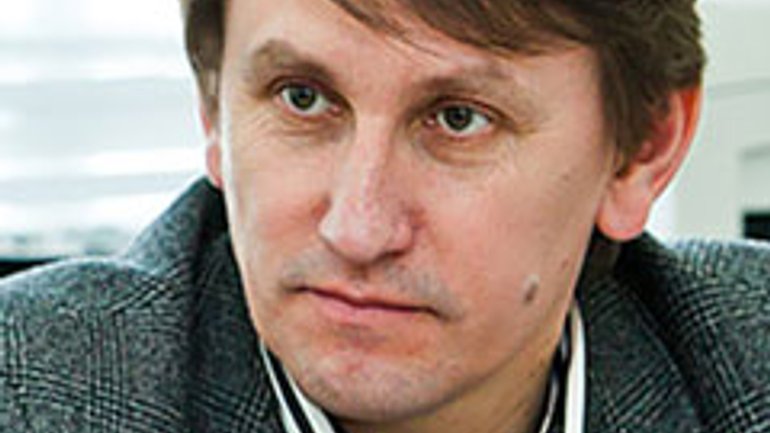
Protecting the human right to freedom of religion is not a common business. It requires constant attention and activity due to various challenges and threats. For 15 consecutive years, the Institute for Religious Freedom has performed an important mission of protecting freedom of conscience and religion in Ukraine and internationally. Due to the efforts of analysts and human rights activists, key amendments to the law have been made, there is ongoing cooperation between the religious community and the authorities, and advice is provided to clergy. On the occasion of this anniversary, RISU talked with the leaders of IRF - head of the public organization Institute for Religious Freedom Oleksandr Zaiets and CEO of IRF Maksym Vasin.
- Let us remember the beginning of the Institute for Religious Freedom. What were the reasons for its establishment, was it in response to any requests or challenges?
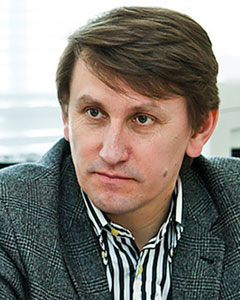 Oleksandr Zaiets: First of all, the Institute was established to protect the freedom of religion. This was the main motive, which remains today unchanged. The government is changing, but the new challenges are constantly emerging.
Oleksandr Zaiets: First of all, the Institute was established to protect the freedom of religion. This was the main motive, which remains today unchanged. The government is changing, but the new challenges are constantly emerging.
In 2001, it was the time of challenges relating to curtailing religious freedom in post-Soviet countries. After adoption in the early 90's of relevant laws to ensure the right to freedom of religion, in some time the restrictive laws that substantially diminished the religious rights and freedoms were extensively adopted. These trends also affected Ukraine.
Before the establishment of the Institute for Religious Freedom, I worked as an assistant to an MP and could better understand how the parliament operates. Then I realized that we needed to care about religious freedom. There was an idea to establish the NGO and associates were found with whom we have now implemented this plan.
- And who helped to establish the public organization and support the work?
- Oleksandr Zaiets: the Institute for Religious Freedom was established by citizens of Ukraine concerned about the future of religious freedom in the new democratic state and countering the attempts to return to the totalitarian past. Both then and now, support from NGOs was provided through partner relations with various national organizations and citizens - churches and religious organizations of different denominations, associations, businesses and other enthusiastic believers of different faiths. For example, in May 2001, we met with Taras Antoshevskyy and our cooperation with RISU in the information sector began and is currently ongoing.
The issue of establishment and protection of religious freedom is important for both large and small denominations, therefore fruits of our work are tangible for many believers. But at the beginning we were working without legal status, and in 2008 we re-registered and the IRF and became a legal entity with appropriate staff.
- Referring to the tasks performed by the Institute, how have they changed? How does the problem sector look right now, how do you see your mission?
- Oleksandr Zaiets: Talking about the protection of religious freedom, the threat related to the development and introduction of amendments to the Law of Ukraine “On freedom of conscience and religious organizations” remains relevant as never before. In 2002-2003, there was an attempt by the authorities to change this law. It was an interesting case when a number of churches together, having passed certain trials, defended religious freedom in Ukraine and prevented restrictive amendments. The result of joint activities inspired the church leaders to form a Council of Representatives of Christian Churches of Ukraine (2003).
At that time, the problems also concerned the protection of personal data, the Land Code, and current activities of religious organizations. After the Orange Revolution, the experience of the Council of Churches as a self-governing body formed the basis of organizational changes in the All Ukrainian Council of Churches and Religious Organizations (AUCCRO).
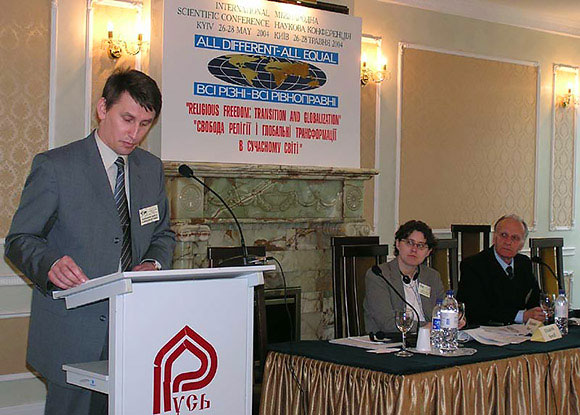
Until 2005, AUCCRO actually operated under the State Committee of Ukraine, which affected the agenda of each meeting. While the main focus of attention was on church-state relations, because on our part, we contributed to the formation of a common position of the Churches in dialogue with the authorities on these and other issues. In addition, the Institute for Religious Freedom also maintains contact and cooperates with the authorities, human rights organizations, academics, experts.
- Let us stop at AUCCRO. Now you can hear different opinions about its unique role, as well as the criticism of its “private club” format. In what way has the perception of Churches changed, and what role has it played?
- Oleksandr Zaiets: AUCCRO plays a key role in maintaining and establishing religious freedom in Ukraine. The Council of Churches is acting in the interests of the religious community of Ukraine. No appeals of AUCCRO to the authorities ever restricted the rights of believers and were in favor of those organizations that are not represented in its composition.
Today the Council of Churches is the main subject of dialogue between religions and different branches of government. The latest AUCCRO’s appeal on establishment of justice in Ukraine related to establishing dialogue with the judiciary. The Council of Churches supports dialogue with the academic and expert community, religious and other public organizations.
The international dimension of AUCCRO should be also noted: interfaith and official events in Israel, Canada, USA, EU, Germany, Norway and other countries. Since 2005, the Council of Churches has been a self-governing institution of civil society in Ukraine.
AUCCRO membership involves responsibility. Every religious association contributes to the development of inter-faith dialogue, and the dialogue between faiths, authorities and society. It involves time and resources, work on collective documents, and participation in the framework of the Council of Churches etc.
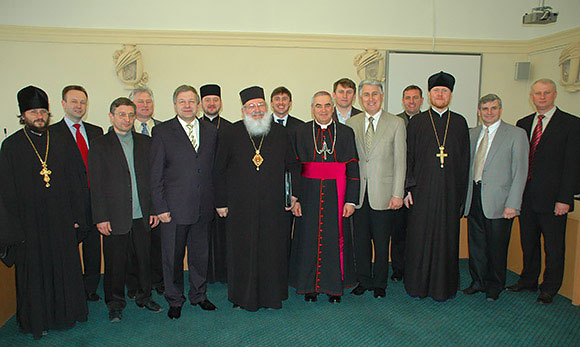
AUCCRO is a full authoritative, powerful civil society actor. Just note how the range of questions to authorities has expanded – it is not the case of freedom of conscience, but also of the establishment of justice, public morality, values of marriage and family as well as the protection of children's rights and basic social rights. In the final address to the President of Ukraine in April 2016, the Council of Churches stressed that government policy should be “socially fair and in time of reforms it should not impose excessive financial burden on impoverished citizens against the background sometimes excessive and unnecessary costs for maintenance of the state apparatus and the privileged social support for former and current officials.” That is, it was a call not to implement reforms at the expense of people against the backdrop of embezzlement of budget funds and lack of political will for countering corruption.
In the context of interfaith dialogue and church-state relations should also mention the other confessional institutions that contribute to the establishment of freedom of religion and collaborates with IRF. In particular, it is the aforesaid meeting of Christian Churches of Ukraine, formed in 2003, and the Council of Evangelical Protestant Churches of Ukraine.
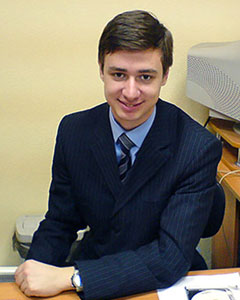 Maksym Vasin: Speaking of the AUCCRO’s role as a public institution, before Maidan its key activities comprised the appeal of Council of Churches concerning violence and arbitrariness of law enforcement officers in Vradiyivka, later – the open letter to the government and the president to protect the right to peaceful protest as well as direct peacekeeping in addressing the socio-political crisis that had led to public protests across Ukraine.
Maksym Vasin: Speaking of the AUCCRO’s role as a public institution, before Maidan its key activities comprised the appeal of Council of Churches concerning violence and arbitrariness of law enforcement officers in Vradiyivka, later – the open letter to the government and the president to protect the right to peaceful protest as well as direct peacekeeping in addressing the socio-political crisis that had led to public protests across Ukraine.
- Let us get back to the institution. How does the system function? It is quite difficult for an outsider to grasp how the organization operates.
- Oleksandr Zaiets: Actually, our work is simple – monitoring, analysis, direct dialogue with religions, authorities, experts and subsequent development of proposals and recommendations, draft laws and other regulations, publication of clarification and analytics, providing advice and legal assistance on strategic issues and more. For example, the monitoring is carried out in constant contact and dialogue with religious and social environment, experts and scholars, government officials and international organizations.
An important component of the IRF activity is to promote the development of church-state relations, interfaith and socio-religious dialogue. Therefore, much effort is invested in expert support of the aforementioned interfaith institutions and specialized public councils set up under ministries and other authorities with the involvement of representatives of denominations.
- What were the maximum challenges, maximum achievements in the history of the Institute? Perhaps, you recall some situations that seemed very troublesome, but eventually you managed to cope with them?
Maksym Vasin: In our work, we get in contact with different areas. For example, the best achievement which is also a long-term challenge for us are attempts to convince the parliament, the government, and the Presidential Administration that the legislative changes in the area of religious freedom should not be developed and adopted secretly, but only in constant dialogue with the religious community.
From the time of founding of the IRF we have been working to counter the processes behind the scenes that affect human rights, the cases when significant changes are made without broad public discussion.
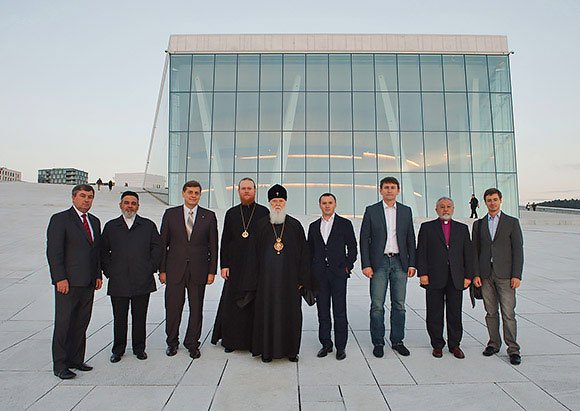
The most difficult is to change the rooted practice of faulty application of the law by local authorities in a way that contradicts the Constitution of Ukraine, particularly in the implementation of the right of believers to public peaceful assembly. But in this area there are many positive achievements – beginning with court decisions in Donetsk in 2006 in favor of our position to the current proceedings at the Constitutional Court of Ukraine. Several times we held successful public campaigns concerning the president’s veto on certain legislative changes supported by human rights groups and other civic organizations.
In our opinion, is always better to consult with community and religious experts to elaborate a quality draft law or government decision than to rush desperately and correct errors, as it was the case with the Tax Code amendments, which require mandatory re-registration of all religious organizations, because during their development, the Parliamentary Committee engaged many public figures, but completely ignored religious specificity, which gave rise to the current difficulties for the government and for churches.
Therefore we have voiced the position of the religious community and our expert opinion on many issues and we are willing to get involved in the legislative process. Establishing an effective public-confessional dialogue with relevant practical implications allows approaching the solution of many issues.
Oleksandr Zaiets: It is not only our position, but also the position of AUCCRO representatives. As far as we can see, the authorities are becoming receptive of this approach – we can see it in speeches and statements of politicians and officials, as well as in the plans for legislative work. For example, the issue of improving the state registration of religious organizations, military and prison chaplains and others. On the other hand, often it is the case when members of parliament or the government initially created a particular problem to religious environment, and take joint efforts to solve it. Very often our rulers do these things in the pursuit of adaptation of national legislation in line with EU practice, although they often adopt different, even conflicting, approaches to religious matters.
One can see that each EU country has its own history and experience of church-state relations. I do not think we need to adapt them for someone and mindlessly copy someone. Instead, it is necessary to analyze our own history and current practices and develop a model of relations between the state and confessions.
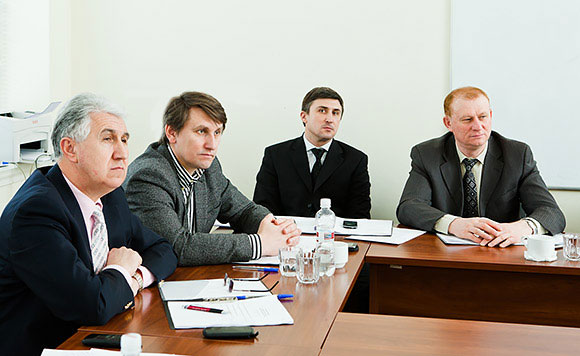
Last year, Ukraine has implemented the project of the OSCE to strengthen the security of religious communities and organizations based on the convictions, in which a high level dialogue between faiths at the national and regional levels was manifested. The multi-confessional factor may contain negative potential, but in our society it is a positive factor, a guarantee of religious freedom in Ukraine. The Churches and religious organizations, as different studies have shown, have the capacity for unity and cooperation for the sake of shared values and the common good.
- Since we have touched upon the issue of the international community, how our experience is represented abroad, other than in AUCCRO trips? And is there a certain country whose model of church-state relations can be adapted to Ukrainian realities?
Oleksandr Zaiets. We consider adopting any foreign model of church-state relations with a great deal of caution. There are countries that are close to Ukraine in terms of state-church relations. However, in our country since independence its own model of church-state relations has formed and developed, which step by step is changing towards partnership. Religious community and expert environment of Ukraine closely monitor the initiatives to amend the legislation on freedom of conscience and religious organizations. The denominations also focus on the issues related to the constitutional process in terms of freedom of conscience and religion, opinion and expression, the right to peaceful assembly, protection of public morality, traditional marriage and family.
AUCCRO closely monitors the political situation in the country and around, not to become a “hostage” of the situation in the context of possible legislative changes. Now the Parliament reviews a series of bills to amend the Law of Ukraine “On freedom of conscience and religious organizations,” some of which are ambiguous in nature and can lead to unpredictable consequences. Ukraine is a truly multi-religious country, so the legislators must adopt a careful and wise approach to the state-confessional and inter-church relations. And the reference to international experience in many cases will not work, because each country has its own peculiarities and religious mentality.
- To your mind, how does the world see the development of freedom of conscience in Ukraine? What conclusions can be drawn from trips abroad?
- Oleksandr Zaiets: International organizations and States involved in monitoring of the status of religious freedom in the world, generally positively perceive and assess the situation in Ukraine. Freedom of religion and a high level of the interfaith dialogue are, in fact, one of the most important achievements that Ukraine can present internationally. In our country not just protocol meetings are held between representatives of different faiths, but a real cooperation is maintained in specific areas and projects concerning many issues in our society. This can be seen internationally. Similar examples of inter-confessional cooperation are rare for modern Europe, so Ukraine's experience in this area can be meaningful and useful for other countries.
Maksym Vasin: On behalf of the Institute for Religious Freedom, for several years we have prepared the report on the human rights situation of human rights in Ukraine in terms of freedom of thought, conscience and religion. This document is issued with the support of the Ukrainian Helsinki Human Rights and is widely distributed, including in English. And this year for the first time in a coalition of human rights organizations we prepare alternative reports to UN bodies – the Committee for Human Rights and the Committee for the Elimination of Racial Discrimination, which pointed to the positive achievements and remaining shortcomings in Ukraine’s fulfillment of its international obligations.
Until recently, freedom of religion was assessed positively, especially in comparison with other countries of Eastern Europe. Now, of course, human rights in Ukraine look like a certain mosaic: there is the occupied Crimea, where some horrific violations of rights were recorded, and even more horrific violations and crimes in the occupied Donbas. The situation is even worse there because there are no legitimate state institutions, where one could apply for protection. The territory legally belongs to Ukraine and Russia actually controls it without public responsibility for it.
Therefore, another focus of our work in recent years has been recording and systematizing the instances of proofs of guilt on the part of Russian authorities for crimes against believers and religious persecution. We have transferred these records to the European Court of Human Rights.
We know about the cases of torture, persecution and murder on religious grounds by pro-Russian militants in Donbas. However, this cannot be called a religious war – rather it is an artificial use of the religious factor to fuel the conflict and heating appropriate separatist sentiment. This is creating the illusion that this is a civil war, rather than direct military aggression.
The third part of the puzzle – is Ukraine on the whole, where people can practice their freedom of religion freely enough. Recent innovations in this area relate to the right of religious organizations to establish private schools (kindergartens, schools, and universities), development of military and prison chaplains, and state accreditation of theological higher education institutions. In this regard, Ukraine can boast a number of positive changes, although some legal issues and local religious conflicts remain, including the change of jurisdiction of the Orthodox communities and others.
Many international organizations use our reports – UN, OSCE, the US Commission on International Religious Freedom, European organizations and human rights organizations. Often we take part in international conferences. This is done in order to publicly testify about the real situation in the Crimea and Donbas on religious persecution and danger of religious fundamentalism, including the Orthodox concept of “Russian World.” Last year there was a case where the day after my speech at the international conference of the OSCE in Warsaw a pastor that had been held hostage by LPR militants was released.
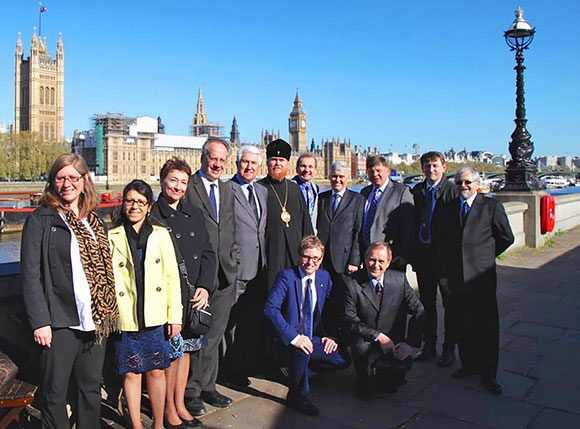
Another aspect is an opportunity to show that the Minsk agreement, formal truce and political declarations do not mean cessation of religious persecution – it is continuing now.
We try to use these international meetings to deliver objective information about religiously motivated crimes of elimination all of Ukrainian from the occupied Crimea and Donbas. While on the other hand, we know that such measures are often limited to numerous speeches, but we are focused on achieving practical results.
Oleksandr Zaiets: In addition, our Institute has been providing information to other countries’ diplomatic missions, the OSCE and other international organizations. We expect the OSCE Special Monitoring Mission to Ukraine to settle the problems of religious persecution and violation of the rights of believers in the temporarily occupied areas of Donbas, check the information on captured temples, houses of worship and other religious buildings and facilitate their return to believers. Unfortunately, at the moment, we see no relevant effort by the OSCE, but hope that they show up on time.
If we get back to church-state relations in Ukraine, it should be noted that in the last two years there was a lot of meetings and contacts between the authorities and confessions. However, the important question remains the actual dialogue between the government and confessions, which would be the result of decision-making and preparation of necessary legislative initiatives and not just words. Basically, this perspective is a typical one for the relationship between government and society, as in many cases when the authorities conduct dialogue for the sake of dialogue – that is purely formal.
Despite this, the state-confessional relations and a high level of freedom of religion are developing in Ukraine. If we get back to interfaith institutions, the large churches along with religious minorities demonstrate ability to conduct effective dialogue based on mutual respect, implement joint social projects and other work on common goals. This is a very good example both for our society and politics, and the international community.
- What are the achievements you would like to see in the near future, and what is the objective that can change things today?
- Oleksandr Zaiets: Speaking about it, it is important that our proposals gained momentum and practical implementation. It is important to establish a dialogue – between church and the government, between church and society, and we want to contribute to its development, in order that different subjects of the dialogue could hear each other and decide who would be the good of society and the people. In the area of legislation we have witnessed the important changes to the Constitution of Ukraine being developed and adopted with virtually no dialogue with society. But it is important that people in power stopped living in a parallel world. Most of the people remain out of the dialogue, and its development could contribute to the development of the entire state.









